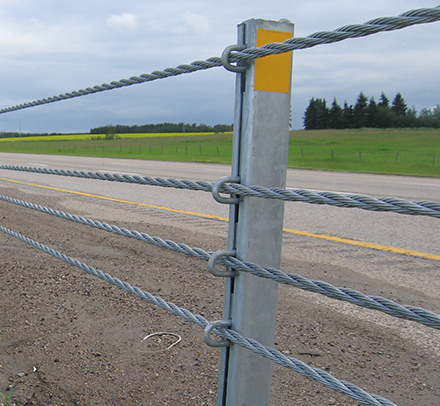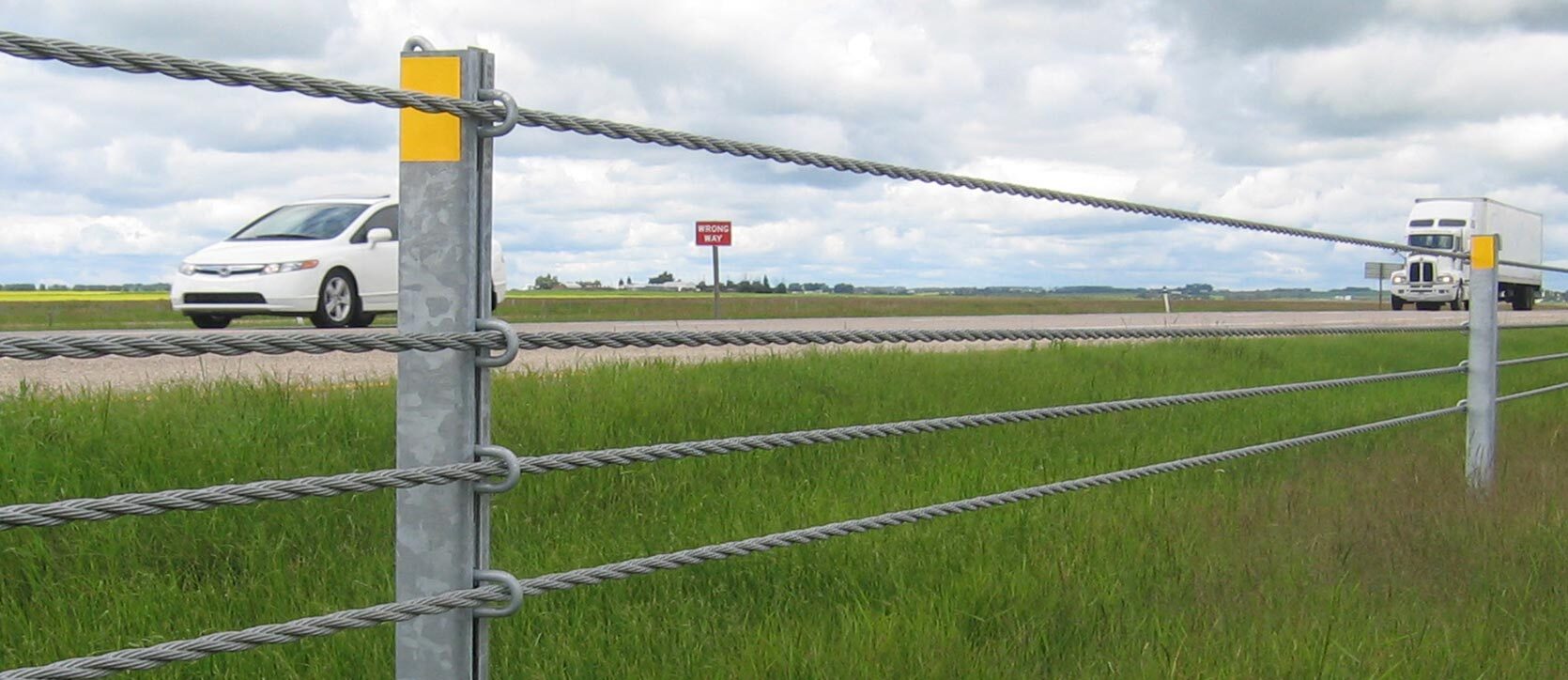National Strand guard rail cable is heavily relied upon to limit cross-median vehicle crashes on North American roadways. Guard rail cabling systems are designed to absorb and dissipate energy upon impact, thereby reducing the severity of collisions and minimizing the risk of injuries to drivers and passengers alike.
Our highly flexible guard rail cable is designed to deform and deflect — absorbing the impact energy more effectively than rigid barriers while ensuring optimal performance under dangerous conditions, including high winds and extreme temperature fluctuations.
Road authorities like the Department of Transportation trust and depend on our guard wire to meet and exceed compliance and safety regulations to provide life-saving protection for motorists and pedestrians on our roadways and walkways.
REQUEST INFO
Our high-quality guard rail cables are USA-Made with high flexibility and adaptivity in mind and can be easily installed in variable terrains and conditions, including curved or uneven roadways. This flexibility allows for more efficient installation and reduces the need for extensive site preparation or modifications.
Constructed from high-strength materials, our guard cables offer excellent durability and resistance to corrosion, rust, and weathering to ensure a longer service life with reduced maintenance requirements, especially in harsh environments and conditions.
When you choose National Strand, you choose high-quality USA-Made stranded wire products meticulously manufactured at a USA-owned and operated company. Our stranded wire products are proudly made to meet the most demanding regulatory requirements and specifications outlined in all major industries.
National Strand is a Proud Women-Owned Business

National Strand was the first in the industry to devise color coded end caps for easy grade identification of guy strand.

Unlike rigid hard steel guard rail systems that can cause significant damage to vehicles upon impact, our flexible guard rail cables lower the chance of vehicle damage upon impact by reducing the likelihood of vehicle rollovers or severe structural damage.
Our guard cable is carefully manufactured with the construction and strength specifications governed by ASTM A741 and other FHWA guidelines, along with various proprietary cable barrier systems. We design and test our wire to meet rigorous safety standards and crashworthiness criteria established by transportation authorities and regulatory agencies.

Our high-quality and high-tensioned guard rail cables can be utilized for multiple applications, including highway median barriers and perimeter crash barriers. Roadway authorities trust our cables to effectively safeguard motorists on divided highways and interstates by preventing crossover accidents and minimizing the risk of head-on collisions.
Used as perimeter crash barriers, our wire protects critical infrastructure facilities and sensitive areas from unauthorized access, vehicular intrusions, and perimeter breaches. We engineer our guard wire to maintain consistent tension levels across the entire system, ensuring optimal performance and structural integrity over time and allowing for easy adjustments to accommodate changing environments and ensure reliable protection year-round.

With decades of industry-leading experience, roadway authorities and millions of motorists trust National Strand to bring unparalleled expertise to the design, manufacturing, and installation of barrier cable systems that help keep people safe. We stand behind our strand to ensure safer roads for our motorists and pedestrians, protecting Americans and the citizens of other countries around the globe with US-Made guard cable.
We adhere to rigorous quality control standards throughout the manufacturing process, from raw material selection to final product inspection. Our commitment to quality ensures that every barrier cable system we produce meets or exceeds industry standards for durability, reliability, and safety.
If you have any questions before making a purchase chat with our online operators to get more information.
Ask An Expert or find our Questions & Answers